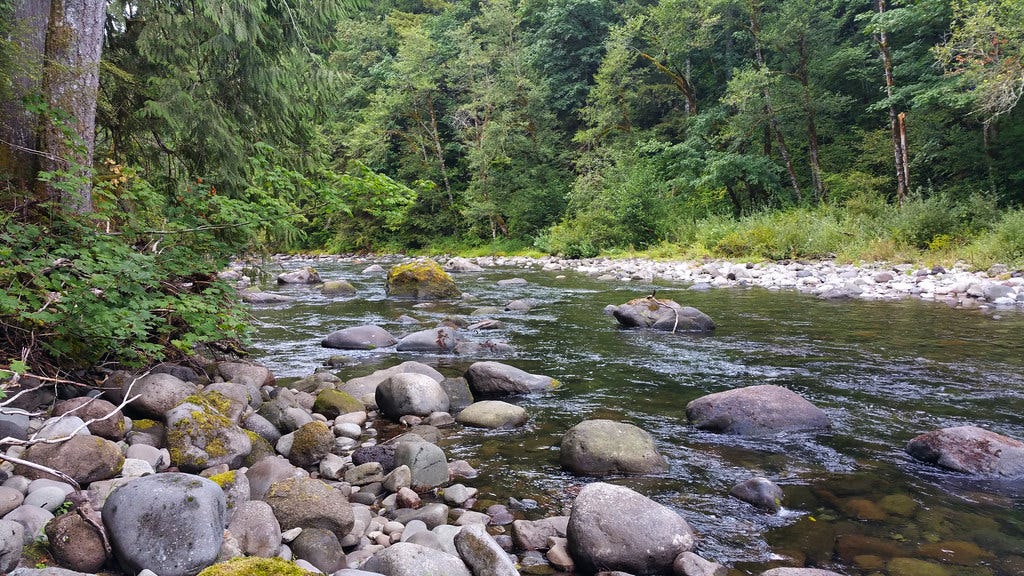The Way: Steve Novick on Property Taxes; Casey Kulla on Welcoming Afghans; and more!
Don't miss perspectives from around the state on the "Greater Idaho" movement, PD-eXit, and civic education.
Did you miss “The Liftoff”?
Read the latest version here
You shouldn’t have to be an “Insider” to be in the know.
Editor’s Note:
A few weeks back, the Tualatin Rotary kindly invited me to speak about The Oregon Way blog and our goal to revive Oregon’s civic culture. I ran through a powerpoint that, among other things, called for improving civic education.
When the meeting ended, a former educator approached me. They wanted to make sure I knew about SB 513, a recently passed bill meant to shore up civic education in Oregon schools. And, while the legislators that championed that bill deserve our praise, it’s a woefully inadequate response to a dire lack of civic knowledge.
The text of the bill itself lays out the dismal state of civic knowledge among young Oregonians. The last time high school seniors took a national assessment on civic knowledge — back in 2010 — less than one in four students scored “proficient.” One in three had a “below basic” knowledge of our democracy. In response, the State Legislature passed a bill that’s too late and does too little.
The crux of the bill—a requirement to pass a civics course before graduation—doesn’t come into force until the Class of 2026…in the interim, we’ll continue to send students through our education system without preparing them to thrive as democratic participants. That’s unacceptable.
And, a single civics course won’t prepare anyone to be active participants. Understandably, most students will treat the course like any other requirement—check the box, complete the tests, and move on to the next thing.
If we really want to prepare students to shape our democracy, then we must create opportunities for them to practice just that—actually participating. Of course, a basic understanding of our Bill of Rights, Constitution, and federalist system are essential, but experience in a democratic activity is transformative.
The other person who came up to me after the meeting had just that sort of transformative experience. Her school required every student to work on a political campaign before graduation. She was assigned to assist Leon Panetta in his race for Congress. Of course, Panetta won that race and, decades later, eventually served as Secretary of the Department of Defense. With every move Panetta made up the political ladder, his student campaign volunteer kept her eye on him—she felt like she had a stake in his success and an obligation to see if he lived up to the initial campaign pledges he made so many years before.
Imagine if we empowered young Oregonians to attend City Council meetings, submit testimony to the State Legislature, and volunteer for a campaign of their choice (local, state, or federal). That’s the sort of learning that will actually improve civic education among future generations.
Some people will say that sort of requirement just isn’t feasible in these partisan times. And it's true that a participation requirement is more controversial than merely asking students to recite the Bill of Rights. However, that requirement, as mentioned above, doesn’t have to be tied to a particular party, candidate, or ideology. Attending a semester’s worth of City Council meetings doesn’t force any sort of speech or preach a certain ideology, it merely reminds students that they have a seat at the table—and should make the most of that seat.
Others will say that students can seek out political internships on their own accord. The problem is many of those positions aren’t paid and, even if they are, may only go to the kids of parents already thoroughly engaged in our democracy. Our hands-off approach to civic experiences means that only a select bunch of students tend to accumulate the knowledge and resources required to shape our democracy. Oregon must do better than that by making civic experiences just as much of an expectation as civic knowledge and ASAP...not years from now.
We cannot wait until 2026 to give our students the tools they need to secure a democracy that’s facing threats from nearly every angle. We need more than tests of civic knowledge to prepare our students for the task of leading our state into the future. We ought to provide every student with meaningful civic experiences that remind students that they, like the rest of us, are the drivers of our democracy.
Here’s to a better Oregon,
Kevin
To look forward to:
*New Contributor* Kailey Kornhauser of OSU
*New Contributor* Ashley Sullivan, Mayor of Enterprise
Rep. Wilde on the pros and cons of gambling in Oregon
Kristina Edmunson on a different approach to covering wildfires
To read:
Steve Novick invites policymakers to adopt a modest proposal to address a growing inequality. He’s urged Oregonians to tackle property tax reform before, maybe now someone will take on the issue.
read the full piece here.
Rich Wandschneider reviews current and former efforts to adjust Oregon’s borders. The upshot for the Greater Idaho movement? It’s not the right approach.
read the full piece here.
Casey Kulla offers two novel solutions to help move Oregon in the right direction. Let’s reduce red tape and welcome new Oregonians with welcome arms.
read the full piece here.
Aeric Estep urges Oregonians not to flee in search of greener pastures, but to instead be a part of solving problems in their community.
read the full piece here.
To do:
Share The Oregon Way with three friends
Nominate a contributor to TOW
Tell us how we can improve!
Photo credit: "Wildwood Recreation Site" by BLM Oregon & Washington is licensed under CC BY 2.0




